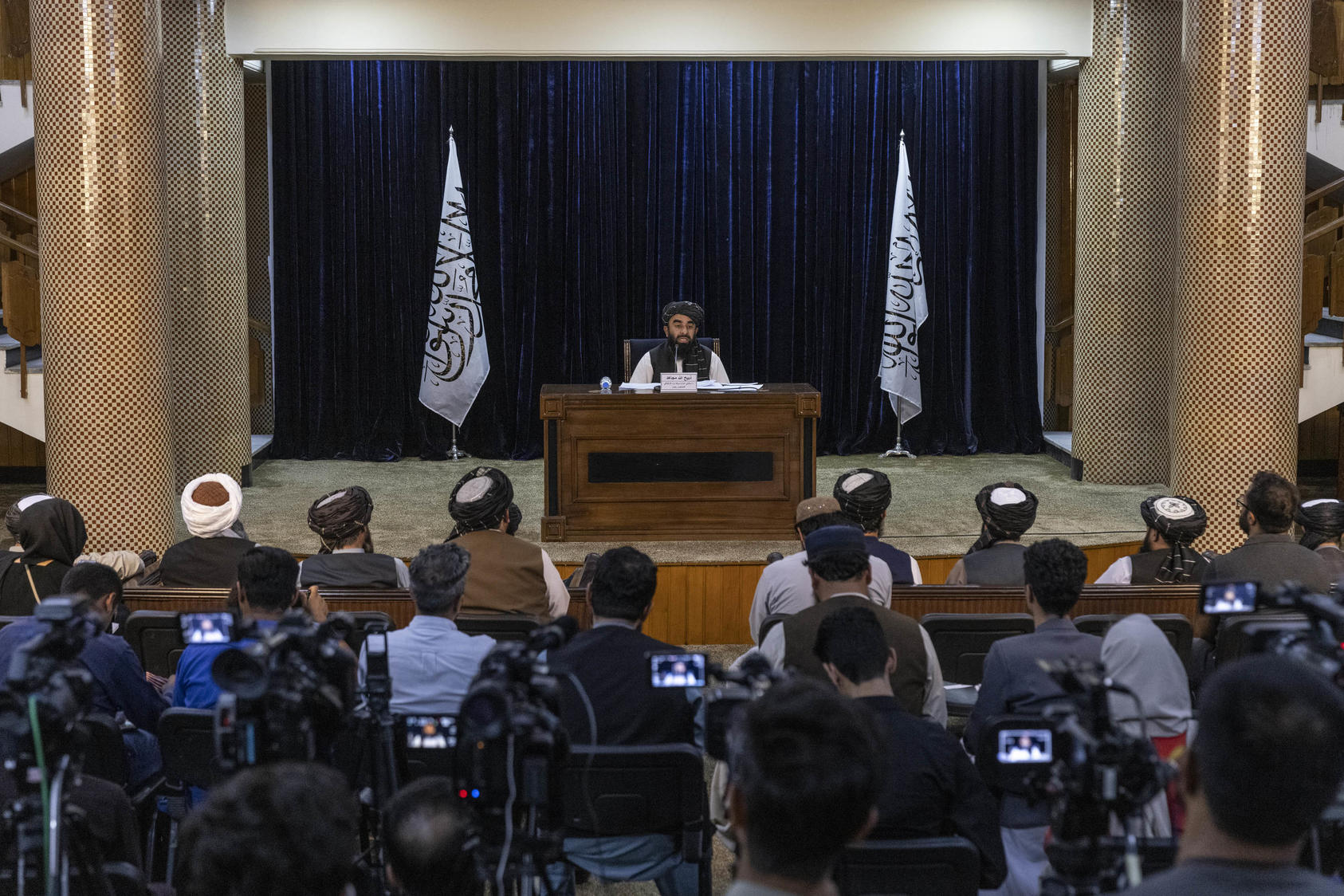Certainties, Ambiguities, and Areas for Compromise
Since their return to power in August 2021, Taliban leaders have not yet articulated a clear vision of how they plan to structure the Afghan state. Some observers have expressed guarded optimism that the Taliban can be persuaded to move away from the more authoritarian and illiberal aspects of their first regime. This report is intended to help these negotiators—whether from the international community or Afghan civil society—find possible compromises between the Taliban’s vision of “true” Islamic governance and liberal democracy and respect for human rights.

Summary
With the return to power of the Taliban in August 2021, many inside and outside Afghanistan anticipate the reintroduction of the type of autocratic, Islamist governance that marked the Taliban’s rule from 1996 to 2001. But might Taliban attitudes to governance have evolved since they were driven from power after 9/11? Is there an opportunity for actors within both Afghan society and the international community to engage with the Taliban in the search for possible compromises between what the Taliban regard as a “true Islamic system” and the relatively liberal 2004 constitution?
As they were in the 1990s, the Taliban are committed to establishing a government consistent both with canonical theories from the medieval Islamic tradition and with the modern Islamist project of creating an Islamic state. Yet the Taliban movement itself appears to contain diverse views about the forms that an Islamic order might take. Furthermore, Islamic constitutions in other countries, as well as previous Afghanistan constitutions, provide very different models, as well as insight into possible future evolutions.
So far, Taliban leaders have not articulated a clear vision of how they plan to structure the state. They have softened their traditional rhetoric on some issues, such as girls’ education, but have cautioned that implementation of policy commitments requires security, resources, and time. Some observers have expressed guarded optimism that the Taliban can be persuaded by interlocutors from the international community and from Afghan civil society to establish a government that differs subtly, but significantly, from that which they built during their first time in power and to retain or refashion at least some elements of the 2004 constitutional order.
Sensitive engagement, coupled with leverage involving foreign aid and international recognition, might encourage the Taliban to adopt a hybrid order that gives the general electorate more say and to respect internationally recognized human rights, at least in part. Engaging the Taliban on these issues will be extremely challenging, but if negotiators understand the paradigm through which the Taliban see the world, and if they are able to translate their requests into an Islamic paradigm that is informed by classical texts and the example of other modern Islamic states, then the Taliban might be convinced to move away from some of the most authoritarian and illiberal aspects of their first regime.
About the Report
This report seeks to identify areas and opportunities for Afghan and international actors to engage productively with the Taliban on the nature of the state they will establish and the type of constitution they will draft. Research for the report was supported by the Afghanistan Program at the United States Institute of Peace.
About the Authors
Clark B. Lombardi is the Dan Fenno Henderson Professor of Law and director of Islamic Legal Studies at the University of Washington. He was, for ten years, a board member of the American Institute for Afghan Studies and is a member of the Council on Foreign Relations. Andrew F. March is a professor of political science at the University of Massachusetts, Amherst. He is the author of two books on Islamic law and political thought, most recently The Caliphate of Man: Popular Sovereignty in Modern Islamic Thought.